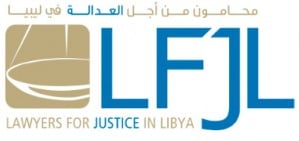Tripoli, 13 April 2013:
The G8 Foreign Ministers’ declaration . . .[restrict]on Preventing Sexual Violence in Conflicts has been welcomed by Lawyers for Justice in Libya (LFJL), the non-governmental organisation campaigning for human rights, democracy and the rule of law in the country.
The two-day meeting in London this week, which focused on the nuclear threat from North Korea, the crisis in Syria and Iran’s nuclear ambitions, also agreed to launch moves to deal with the use of rape and sexual violence as a weapon in conflicts.
The G8 declaration noted that sexual violence was illegal in international law and that offering amnesties for such crimes was also illegal. It said that an international protocol specifically addressing issues of sexual violence in conflict was needed.
There were numerous rape cases during the Libyan revolution and it has been said that rape and sexual violence was deliberately used as a weapon by Qaddafi regime forces to try and terrorise the rebels. One of the charges against Qaddafi’s last prime minister, Al-Baghdadi Al-Mahmoudi is that he ordered the use of rape in Zuara during the revolution.
There have also been accusations that revolutionaries also resorted to sexual violence.
In it response to the G8 declaration, LFJL said it was grateful for the explicit recognition by the UK’s Foreign Secretary William Hague of Libya as a country in particular need of the support of international experts in this area. The UK has a team doctors, forensic scientists, police and gender and other experts to look into reported cases of rape and it has been to Libya to help to help build up Libyan judicial, investigative and legal capacity in the field.
“During the 17 February Revolution there were many alarming reports of rape and other forms of sexual violence perpetrated by all sides to the conflict, including in transit camps, yet very few suspected perpetrators have been brought to justice,” the statement read.
LFJL also welcomed Special Representative of the Secretary-General on Sexual Violence in Conflict, Zaniab Hawa Bangura’s undertaking that “For the perpetrators, there can be no hiding place; no amnesty; no safe harbour. They will be pursued by any and all means at our collective disposal. In the process, we will begin to transfer the stigma of this crime from the victims, to the perpetrators.”
LFJL’s Director, Elham Saudi called the declaration “a welcome step towards ensuring greater protection for human rights in conflict, particularly those of women and children. It is commendable to see that influential members of the international community are prioritising the elimination of such abhorrent and violent crimes”.
She continued: “We urge the G8 ministers to mark this commitment by strongly encouraging post-conflict societies, such as Libya, to address their legacies of violence and human rights abuses. Sexual violence in particular must be tackled by transitional communities in a way that holds perpetrators accountable, is sensitive to victims, and addresses issues of societal stigma.”
The Libyan government had so far failed to “play a productive role in the elimination of violence against women, the statement said, highlighting the fact that Libya had not signed the Joint Statement to Promote and End Gender-Based Violence at the 57th Session of the Commission on the Status of Women. “This marks a disappointing and regressive move on behalf of the Libyan government. It is also a step away from Libya’s commendable accession of the Convention on the Elimination of All Forms of Discrimination Against Women (CEDAW) as well as its Optional Protocol” said Saudi. [/restrict]







